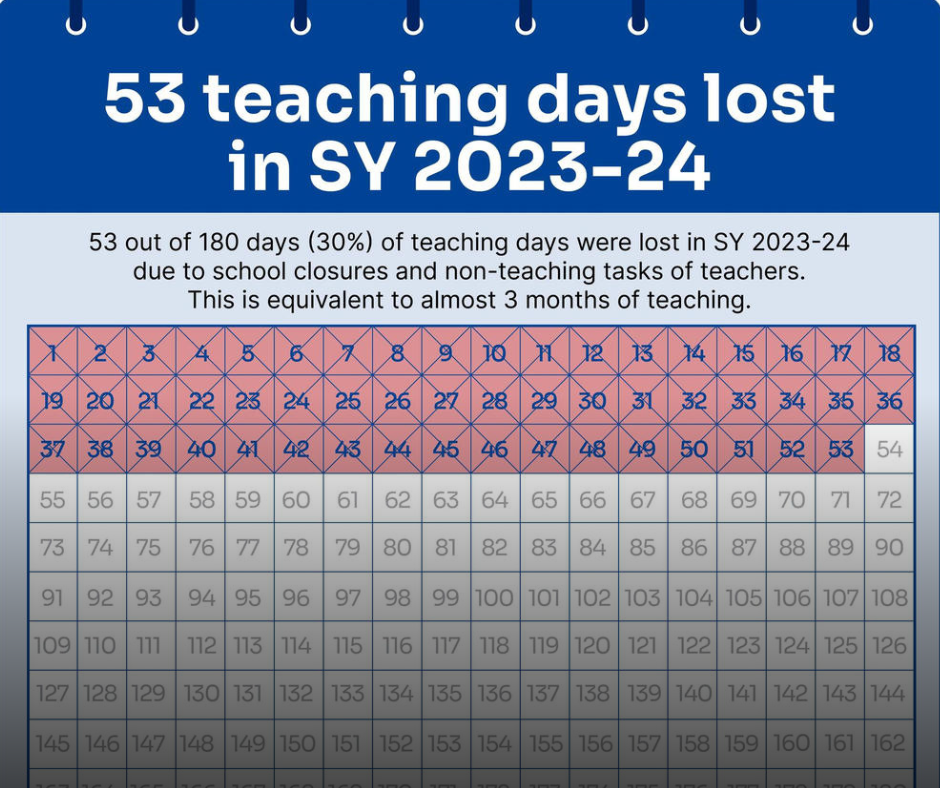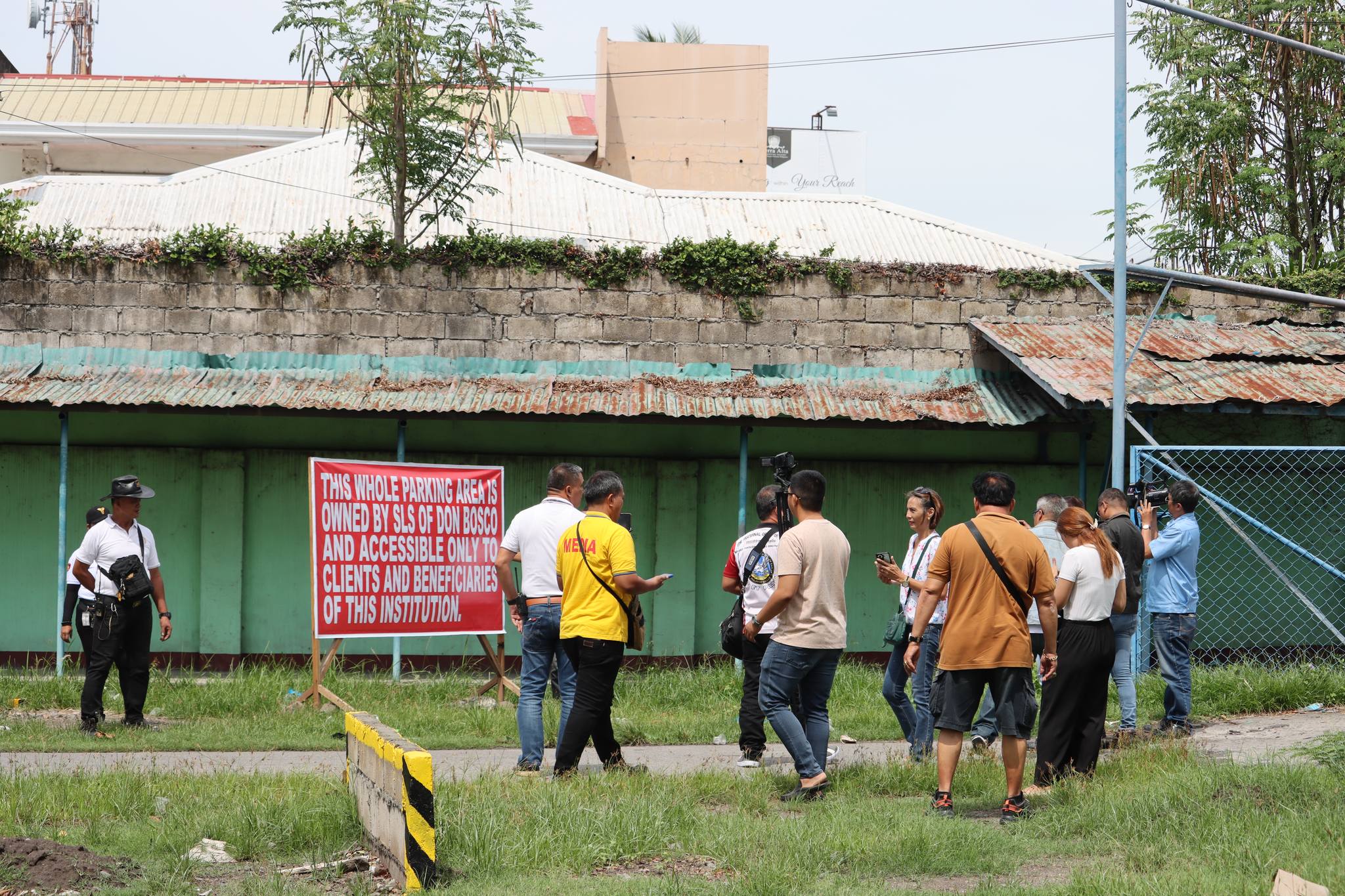Nearly a third of learning time lost in 2023 due mostly to calamities – EDCOM 2

A study by the Philippine Institute for Development Studies (PIDS) estimated that students lost 53 days or almost three months of learning time in the academic year 2023-2024 due to several factors, but mostly due to calamities.
The lost days are equivalent to 29% of the 180 school days traditionally required by the Department of Education (DepEd) through DepEd Order Nos. 23 s. 2016 and 25 s. 2017.
The PIDS study, which assessed the MATATAG K-to-10 pilot implementation in 35 schools, estimated that of the 53 learning days lost, 32 days were due to high heat index and calamities.
This year, the El Niño aggravated the heat index to dangerous levels that forced thousands of schools to use alternative delivery modes (ADM) of learning — either via online mode or modular learning in which students are tasked to answer modules and complete activities on their own.
“There were practically no face-to-face classes in April-May due to the high heat index across the country. These figures are estimates because we need to weigh this with the actual incidence by day. Nevertheless, from our experience in visiting schools from Visayas and Mindanao, there were no classes since the start of April,” explained Dr. Abrigo.
After calamities, the next biggest cause of the lost time were teachers’ non-teaching tasks, such as workshops, training and other administrative tasks, which ate up 12 days.
Actual learning days are also lost because of local holidays (four days), off-class activities (four days), such as competitions and school celebrations and school closures (one day) due to conflict.
A challenge to implementing MATATAG
To Second Congressional Commission on Education (EDCOM 2) Executive Director Karol Mark Yee, the findings are “concerning” because it highlights existing challenges that may limit the implementation of the new K-10 curriculum. The new curriculum aims to decongest the K-12 curriculum to focus on core learning competencies
“This means that even if we keep decongesting the curriculum, if there is no opportunity or actual days to teach the students, there is very limited time to absorb the lessons,” Yee said in a statement.
Yee noted that the DepEd’s efforts to move the school calendar and reduce administrative tasks of teachers would “go a long way” in making up for lost days but given the severity of the issue, EDCOM 2 hopes the DepEd “could seriously look into the matter and find creative solutions to address this.”
It may be recalled that in January 2024, the agency released DepEd Order No. 002, s. 2024, or the “Immediate Removal of Administrative Tasks of Teachers,” which prohibits schools from including administrative tasks such as personnel and records management, financial management, and property custodianship, among others into the workload of teachers.
Meanwhile, President Ferdinand “Bongbong” Marcos, Jr. approved the DepEd proposal to move classes to July 29, 2024, gradually reverting to the old school calendar. The policy was issued through DepEd Department Order No. 003 s. 2024.
Digitalization for admin work
Based on an analysis conducted by the Analytics Association of the Philippines, which the EDCOM 2 is validating through its ongoing studies, teachers approximately take 70 out of 220 school days entering data into the DepEd system.
Yee noted that teachers, in various focus group discussions, reported being unable to teach due to urgent reports for DepEd. “It’s critical that school days translate to learning days,” Yee said.
DepEd according to DepEd Undersecretary Gina Gonong is ensuring that the time allotted for teaching is being followed.
“We hope to better implement this new policy in the coming months and see improvements in data,” Gonong said.
EDCOM 2 Co-Chairperson Senator Win Gatchalian said relieving teachers from non-teaching tasks would require some time in hiring personnel and beefing up resources. As such, Gatchalian is urging to fill the gaps by exploring strategies such as digitalization.


